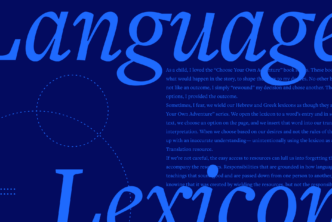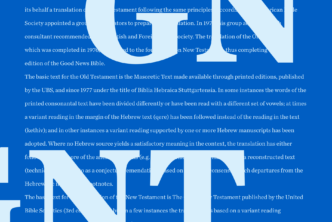What is the draw, exactly, to owning the Loeb series? They present well in a bookcase, but unless you use them, they are no more than art. But thousands of us purchase Loeb volumes year after year, amassing our own personal libraries of texts whose authors are long dead. Why?
Utility, design, function, simplicity. These are a given, if you have ever held and read a Loeb. Confrontation, challenge, impenetrability, arrogance. These are less obvious, but I suggest they are the essence of a Loeb.
Unless Ancient Greek or Latin are your first language, attempting to read the left-hand side of a Loeb presents an immediate check on one’s confidence in languages now considered “dead.”
This is especially the case for students of Koine Greek, with no previous exposure to Classical Greek or the Latin of Cicero.
Over the next few months, we’re going to highlight a number of special Loeb collections on pre-pub for your Logos Digital Library. Some of the must-haves include: an Ancient Greek Poetry Collection (8 vols.); the Letters of Cicero (12 vols.); and Thucydides’ History of the Peloponnesian War (8 vols.). More to come on that.
But why buy the Logos editions? They don’t display on your shelf. Here’s why. Presently, you can acquire Loeb volumes in one of three formats:
1. Hardcover
The original. Easy to transport (one at a time, at least). Pure pleasure to read. The mark of true intellect when pulled casually from one’s leather bag in the midst of a crowded café. Expensive. Prohibitively so. At $26 a copy (new), let’s do the math: 26.00 x 542 = $14,092. Go buy a 2017 Fiat 500 instead, or maybe a used Hasselblad.
Used copies are not really cheaper, unless you are seeking less popular authors. Ebay isn’t much better. Attempt to buy the entire collection without inheritance money and you’ll gain a world-class education, and a box to live in with a rusted bicycle outside.
Invest in the hardcover editions of the author(s) you plan to read often. I keep Seneca in my kids’ room, and read an epistle to them a few times a week. They need to see, feel, and smell. Red, paper, musty. It’s good.
(I should mention here the free, public domain Loeb editions. These PDF’s leave much to be desired in terms of usability, but if you literally can’t spend any money on the other options, these may suffice for a time.)
2. Online
The online Loeb Classical Library (LCL) is a superb resource. Accessed easily through many university libraries. The search function…gold. Lists related works below each page. Currently 538 volumes online.
Readability leaves much to be desired. Poor user experience. Nothing like the real thing. Requires internet access. Lack of ownership.
Recognize the digital library for what it is; the poor student’s Loeb. A gateway drug to the hardcover editions. Great research tool for limited use. But at $150/year for an individual subscription, without granting ownership of any single hardcover or digital volume, there is a better option.
3. Logos
The best of both. Full integration with your entire Logos Digital Library. Great user experience = readability, font manipulation, mobile access. Powerful search capabilities beyond LCL online.
Still, not the holistic experience of hardcover. But iPad + Logos = Genius.
Affordable. Supremely so compared to print. You, and I, cannot afford to purchase the entire Loeb series in hardcover (yet). And although neither of us have the bookshelf space, we do have terabytes. And Logos. Add the Loeb collection to your library today.





